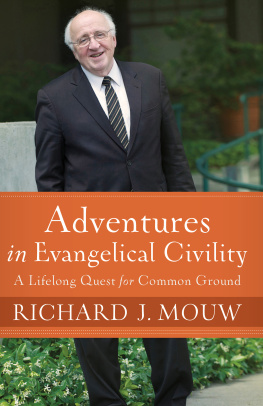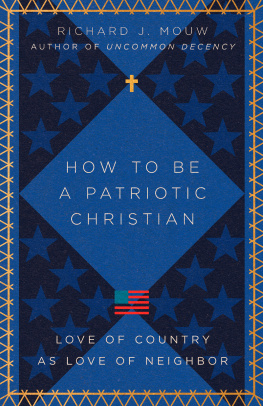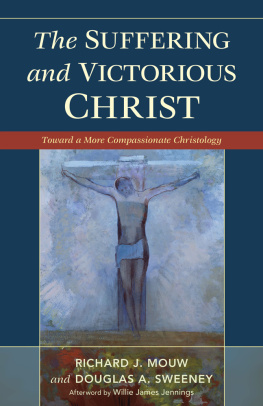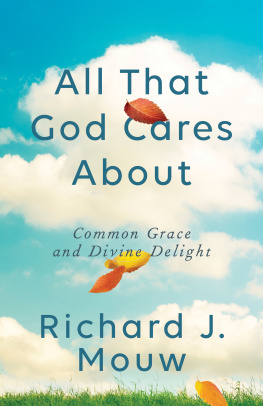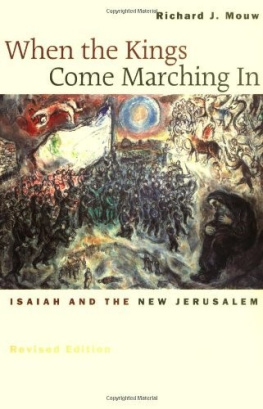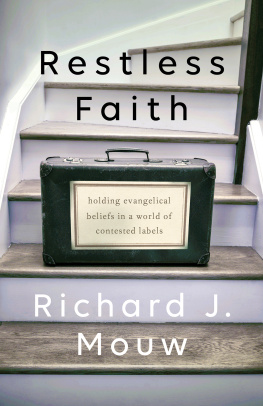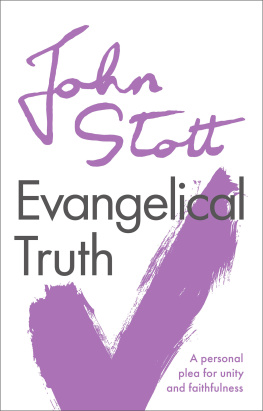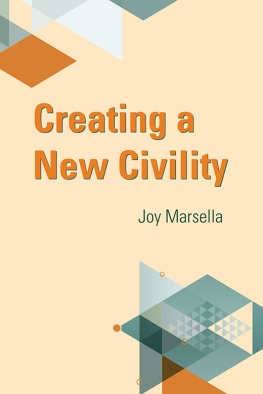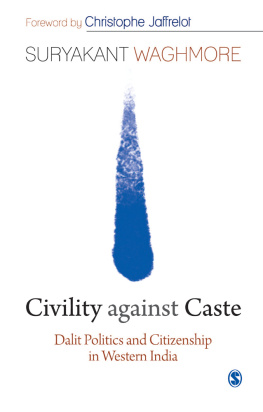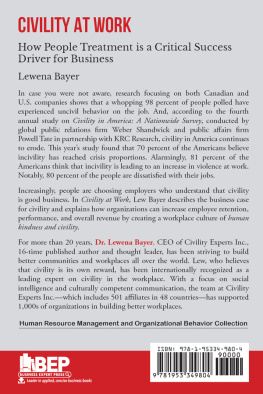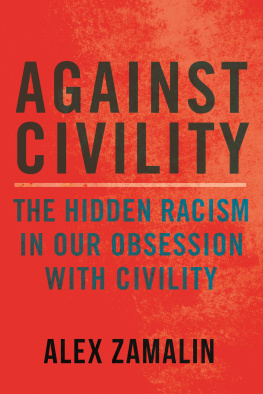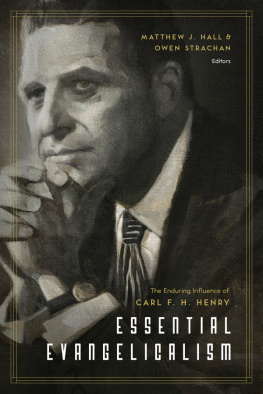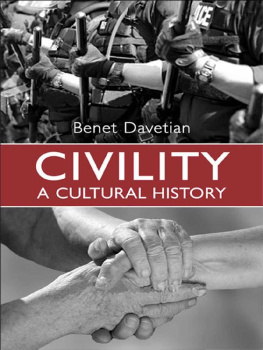Richard J. Mouw - Adventures in Evangelical Civility: A Lifelong Quest for Common Ground
Here you can read online Richard J. Mouw - Adventures in Evangelical Civility: A Lifelong Quest for Common Ground full text of the book (entire story) in english for free. Download pdf and epub, get meaning, cover and reviews about this ebook. year: 2016, publisher: Baker Publishing Group, genre: Religion. Description of the work, (preface) as well as reviews are available. Best literature library LitArk.com created for fans of good reading and offers a wide selection of genres:
Romance novel
Science fiction
Adventure
Detective
Science
History
Home and family
Prose
Art
Politics
Computer
Non-fiction
Religion
Business
Children
Humor
Choose a favorite category and find really read worthwhile books. Enjoy immersion in the world of imagination, feel the emotions of the characters or learn something new for yourself, make an fascinating discovery.
- Book:Adventures in Evangelical Civility: A Lifelong Quest for Common Ground
- Author:
- Publisher:Baker Publishing Group
- Genre:
- Year:2016
- Rating:5 / 5
- Favourites:Add to favourites
- Your mark:
- 100
- 1
- 2
- 3
- 4
- 5
Adventures in Evangelical Civility: A Lifelong Quest for Common Ground: summary, description and annotation
We offer to read an annotation, description, summary or preface (depends on what the author of the book "Adventures in Evangelical Civility: A Lifelong Quest for Common Ground" wrote himself). If you haven't found the necessary information about the book — write in the comments, we will try to find it.
Adventures in Evangelical Civility: A Lifelong Quest for Common Ground — read online for free the complete book (whole text) full work
Below is the text of the book, divided by pages. System saving the place of the last page read, allows you to conveniently read the book "Adventures in Evangelical Civility: A Lifelong Quest for Common Ground" online for free, without having to search again every time where you left off. Put a bookmark, and you can go to the page where you finished reading at any time.
Font size:
Interval:
Bookmark:
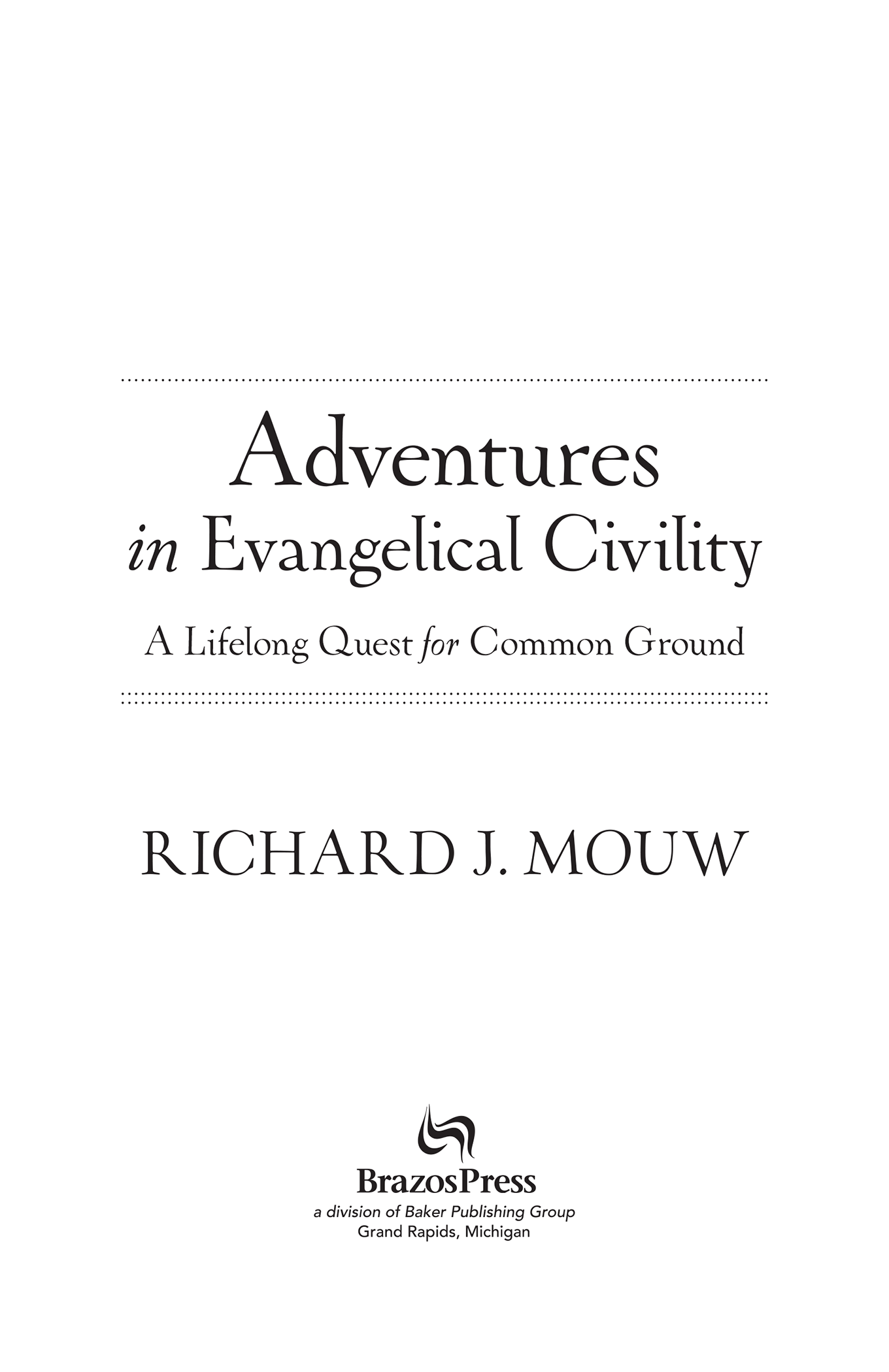
2016 by Richard J. Mouw
Published by Brazos Press
a division of Baker Publishing Group
P.O. Box 6287, Grand Rapids, MI 49516-6287
www.brazospress.com
Ebook edition created 2016
All rights reserved. No part of this publication may be reproduced, stored in a retrieval system, or transmitted in any form or by any meansfor example, electronic, photocopy, recordingwithout the prior written permission of the publisher. The only exception is brief quotations in printed reviews.
Library of Congress Cataloging-in-Publication Data is on file at the Library of Congress, Washington, DC.
ISBN 978-1-4934-0587-9
Unless otherwise indicated, Scripture quotations are from the New Revised Standard Version of the Bible, copyright 1989, by the Division of Christian Education of the National Council of the Churches of Christ in the United States of America. Used by permission. All rights reserved.
Scripture quotations labeled KJV are from the King James Version of the Bible.
Scripture quotations labeled NIV are from the Holy Bible, New International Version. NIV. Copyright 1973, 1978, 1984, 2011 by Biblica, Inc. Used by permission of Zondervan. All rights reserved worldwide. www.zondervan.com
Scripture quotations labeled RSV are from the Revised Standard Version of the Bible, copyright 1952 [2nd edition, 1971] by the Division of Christian Education of the National Council of the Churches of Christ in the United States of America. Used by permission. All rights reserved.
To Phyllis,
loving and wise companion in the quest
Contents
Preface
S HORTLY AFTER I RETIRED AS PRESIDENT OF F ULLER T HEOLOGICAL Seminary, I met a local businessperson in the aisle of a grocery story. He asked me the typical How are you enjoying retirement? questions, and then he said: I hope you are writing your autobiography! Im sure there are some great stories to tell about your twenty-year presidency at Fuller! My response was that, no, there was no autobiography in the works. But, I added, I was beginning to write a memoir. How is that different? he asked.
I forget exactly how I answered his question, but I know it was a quick response, meant to get me back to grocery shopping. His question did motivate me, however, to do a Google search about the meaning of memoir. I discovered that a number of academic conference sessions have been devoted to lengthy discussions about what constitutes a memoir and that many a book reviewer has complained that something an author claims is in the memoir genre fails to meet the standards for inclusion.
Ill leave the details of that for literary critics to discuss. For my part here, I only want to take note of a contrast that often shows up in those discussions. There is a general consensus that a memoir must be characterized by a sustained narrative, and that when this is absent the result is frequently described as a collage.
Autobiographies, as well as memoirs, are certainly meant to be sustained narratives, but this book is certainly not an autobiography. There are no reports here about growing up in New Jersey, or being a pastors son, or playing tuba in the high school band. The only reference to an early romance, for example, focuses on my teenage arguments with Mary Jane, a devout Catholic, about Marian dogma. If I were to discuss the most important of my human relationshipsthe life adventures (to use the word from my title) for which I am most grateful to GodI would focus on my life with Phyllis (to whom I dedicate this book). I would also say much about our son, Dirk; our daughter-in-law, Christine; and our two grandsons, Willem and Peterbut there is nothing about them in these pages. And the man from the grocery store will definitely not be offered here the kind of great stories about Fuller that he hoped I would narrate.
Nor is this book a detailed report of my intellectual pilgrimage as such. Someone once asked me to list the ten most influential books in my life, and I began withand this was only half jokingly The Boy Scout Handbook and the Sugar Creek Gang adventure stories, written for preteen evangelical boys. Most of us dont really mention in such contexts the subclass of the writings that have actually shaped our views of life. But I do not even discuss in these pages several of the books that have profoundly shaped my theological and philosophical perspectives. Given the theme that is my organizing principle here, there is no occasion to describe what an illuminating experience it was for me to read Father (later Cardinal) Avery Dulless Models of the Church or works by and about Edith Stein, a Jewish convert who became a Carmelite nun and was killed by the Nazis. And those are only two prominent examples of many influences that are not treated in what follows.
Recently I read a comment by a writer, much younger than myself, who talked about having produced her third memoir. While she could easily be running the risk of telling us more about herself than most of us care to know, she is not violating the nature of the genre. A person can write multiple memoirs, but there can really only be a single autobiography. If one writes a second version of the latter, it is because there was more to add, or there were important revisions to make. A memoir, though, has a more limited scope. It typically has an explicit angle, a specific area of ones life that one wants to reflect upon.
My angle in this book has to do with the idea of human commonness . As I look back over my academic careerI write this now at age seventy-fiveI see commonness as a theme that has been informing the main intellectual endeavors that have engaged me from the start of my academic career. More often than not, the theme has been an explicit topic that I have wanted to address. At other times, I can now discern, it was there just below the surface of what I was wrestling with. But it has been a consistent theme for me, whether in thinking about the implications of my Calvinist view of election, or my philosophical investigations of action theory and body/soul dualism, or my efforts to learn what I could from Mennonites, or my interfaith dialogues, and so on.
I make no effort here to bring all of this under a chronological scheme. I jump around a bit from one stage to another, and then back again, in my intellectual journey. This may give a collage impression at times. But my intention is to reflect on my intellectual travels in the form of what I have consciously intended throughout the writing as the development of a sustained narrative.
In a casual conversation with a prominent theologian a few years ago, we engaged in a little bit of What have you been reading lately? chatter. We discovered that we had each recently read the same two memoirs, by authors whom we both knew personally. We agreed that the two books were good reading, but we also agreed that each contained elements of bitterness that detracted from the overall value of the narratives. Theres nothing worse than reading old academics trying to get even with people in their past, Richard, the theologian remarked as we took leave. So lets agree that neither of us will make an attempt to settle some scores when we write about our own careers.
He and I made the vow together, and I think I keep it in this book. Truth be told, at no point in writing this book was I even tempted to settle any scores.
Well, with one exceptionI do have a score (more than one, actually!) that I want to try to settle with myself. In fact, an awareness of the need to deal with that score has been one of my motivations for writing this set of reflections on my journey. The score is the worry that I have about the possible undesirable consequences of some of the approaches and viewpoints that I have argued for thus far in my career. Not that I am ready to back off on any major position that I will be reflecting upon in this book. But I still worry about unintended consequences of what I have advocated for over the past several decades, and the worry nags me as I reflect back. While I am convinced that each aspect of my quest for commonness was meant to achieve something worthwhile, the net effect of all those efforts could very well encourage some bad tendencies. So I find it necessary to spell that worry out and to explain what I have done in my own heart and mind to try to hold the dangerous tendencies in check. I will explain all of that in a final confessional chapter.
Next pageFont size:
Interval:
Bookmark:
Similar books «Adventures in Evangelical Civility: A Lifelong Quest for Common Ground»
Look at similar books to Adventures in Evangelical Civility: A Lifelong Quest for Common Ground. We have selected literature similar in name and meaning in the hope of providing readers with more options to find new, interesting, not yet read works.
Discussion, reviews of the book Adventures in Evangelical Civility: A Lifelong Quest for Common Ground and just readers' own opinions. Leave your comments, write what you think about the work, its meaning or the main characters. Specify what exactly you liked and what you didn't like, and why you think so.

